Christopher Crockett

All Stories by Christopher Crockett
-
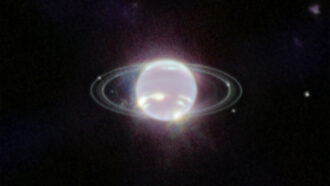 Planets
PlanetsCheck out the first direct look at Neptune’s rings since the ’80s
The Voyager 2 spacecraft took the first pics of Neptune’s rings 33 years ago. Now, NASA’s James Webb telescope is providing a more detailed view of them.
-
 Space
SpaceOur feverish universe is getting hotter every day
For the first time, astronomers have taken the temperature of the cosmos at different times in its history. Galaxy clusters are cranking up the heat.
-
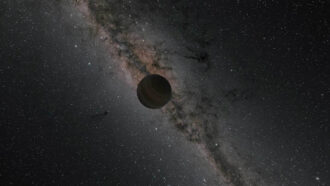 Space
SpaceRogue planets wander the galaxy all alone
Some planets don’t orbit stars. They were kicked into space long ago. The newest, smallest one found is only about as massive as Earth.
-
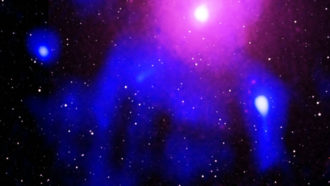 Space
SpaceBlack hole mega-burp was truly explosive
Long, long ago, in a galaxy far, far away, a black hole blasted out 100 billion times as much energy as our sun ever will. One word for that: Wow!
-
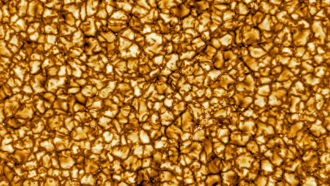 Space
SpaceSee the sun in dazzling detail
These images show the sun as it has never been seen before. They come from the new Daniel K. Inouye Solar Telescope.
-
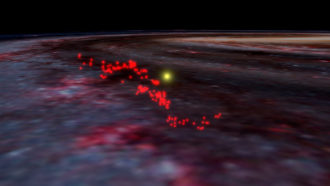 Space
SpaceOur sun is neighbor to a giant wave of gas
The Earth and sun sit relatively close to a newfound thread of star-forming gas. That gas is being called the Radcliffe Wave.
-
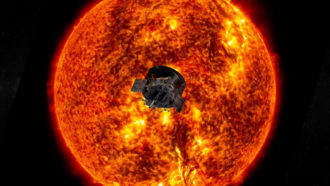 Space
SpaceNASA’s Parker probe spots rogue waves and magnetic islands on the sun
The Parker probe’s first data is giving scientists a look at what’s to come as the craft moves closer to the sun over the next few years.
-
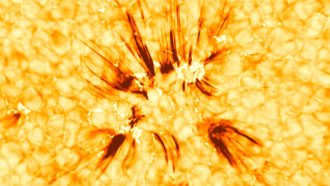 Physics
PhysicsMagnetic fields may supercharge the sun’s release of heat
Astronomers have linked flame-like tendrils rising from the sun to changes in its magnetic fields. This may be one step toward understanding why the sun’s corona is so very, very hot.
-
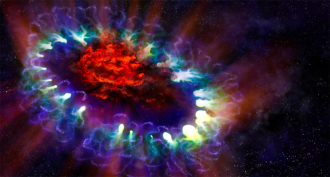 Physics
PhysicsAfter 30 years, this supernova is still sharing secrets
It’s been 30 years since astronomers first witnessed the stellar explosion known as SN 1987A. Today, researchers are still learning from this cataclysmic phenomenon.
-
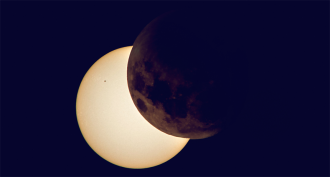 Physics
PhysicsGetting ready for the solar eclipse
A total solar eclipse will race across the continental United States in August 2017. Scientists and the public are preparing to watch and learn.
-
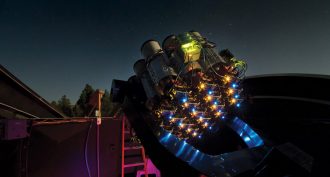 Space
SpaceCosmic mystery: Why are many galaxies dark?
Dark galaxies went unnoticed until 2015. Since then, scientists have now found more than 1,000 — and there may be many, many more.
-
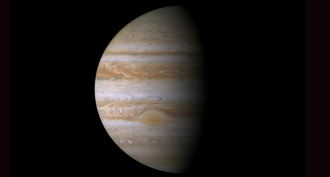 Space
SpaceClouds on Jupiter run surprisingly deep
Jupiter’s clouds are not just a thin jacket about the planet, new data show.